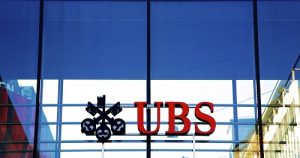A few months after announcing the appointment of a new CEO, Swiss wealth manager UBS is looking to expand its reach in digital technology.
In February, UBS revealed that Ralph Hamers would become its new CEO, replacing current chief Sergio Ermotti effective November 1. Hamers has been an outspoken advocate for digital banking, and the COVID-19 pandemic has steered more clients towards the benefits of online services.
As a result, the bank is now setting aside hundreds of millions of dollars to fund up-and-coming FinTechs. Sources told Fortune that the investments will range from $10 million to $20 million, with UBS intending to hold on to the companies for a minimum of five years.
“UBS wants to further engage with and support fintech firms,” said Mike Dargan, UBS’s Global Head of Group Technology. “The new venture investment portfolio is a next step to accelerate our innovation and digitization efforts.”
The new VC fund will reportedly invest in three categories of FinTechs: client engagement, investing and financing platforms, and improving underlying operations of the bank. UBS has already started screening potential candidates.
This is just the beginning for the bank, which also plans to invest in more digital tools for its wealth unit, aiming to slash costs and become more competitive among FinTechs, in an effort to attract younger customers. In addition, UBS is working to gain traction in China’s wealth market and is in the process of acquiring a digital fund distribution license so it can work with Chinese customers. According to Edmund Koh, UBS’s Head of the Asia Pacific Region, the license will ultimately be used to move into advisory and on-boarding of new wealth clients.
UBS recently reported solid first quarter results, showing high client transaction volumes in Global Wealth Management and the Investment Bank. Operating income grew by 10 percent despite a rise in credit loss expenses, while operating expenses increased by 4 percent. Profit before tax (PBT) was around $2 million, up 30 percent year-over-year (YoY), while the Group’s cost/income ratio jumped 6 percentage points to 72.3 percent.
























